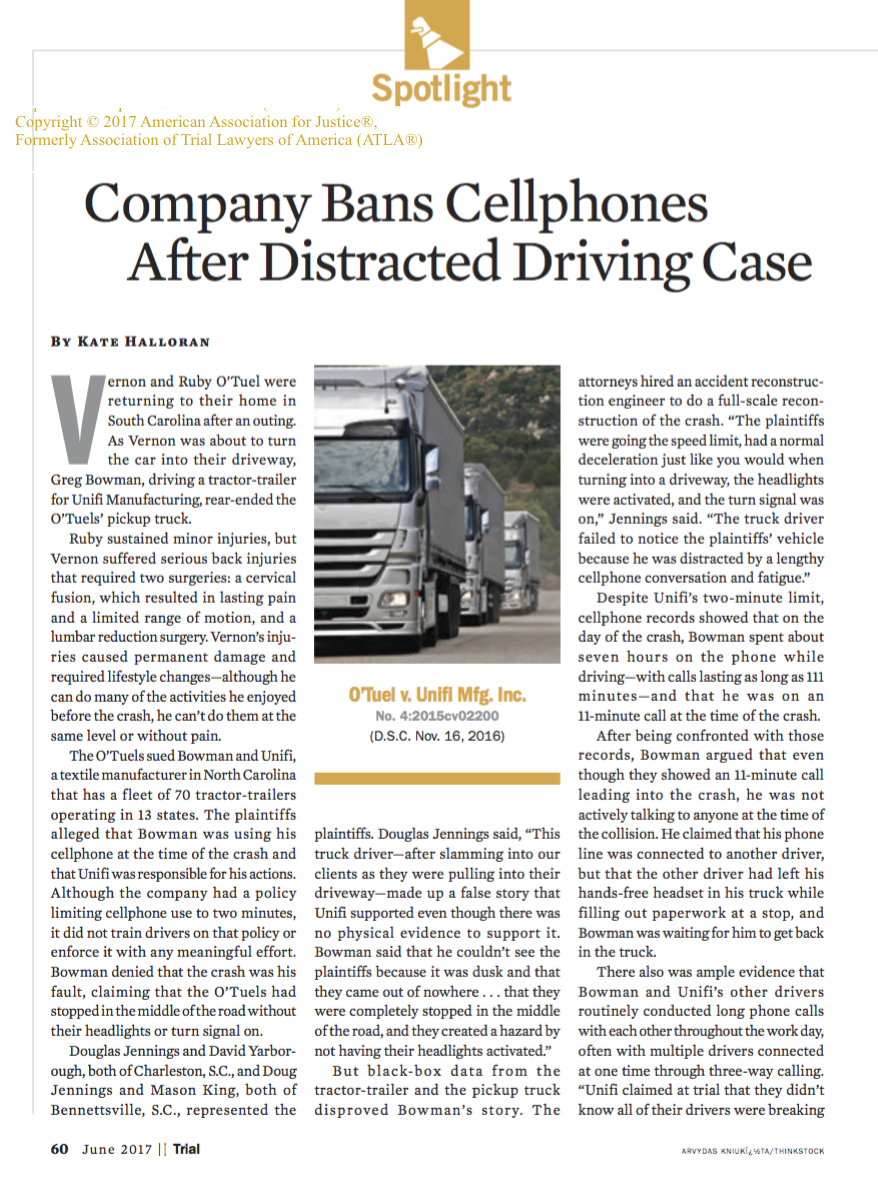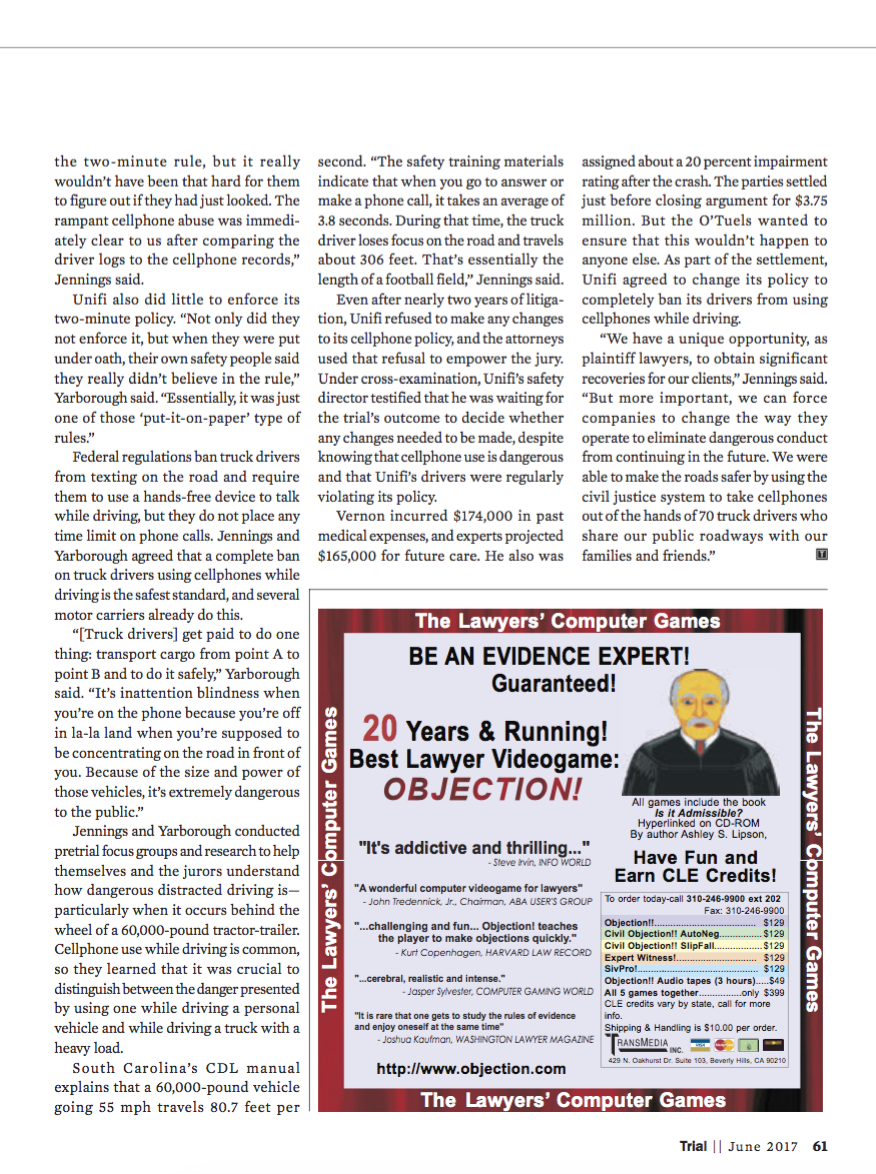The hard work of our attorneys Douglas Jennings and David Yarborough is a “Spotlight” feature in the June 2017 issue of Trial magazine. The case highlighted in Trial was fought on behalf of a 61-year-old Pee Dee area couple who were struck by a tractor trailer truck in October 2014. We are thrilled with this national recognition and are especially proud to have set a precedent in the trucking industry banning the use of cellular devices including Bluetooth and hands-free headsets for all truck drivers while their trucks are in motion, starting with UNIFI (employer of the driver causing the wreck). For UNIFI, this means its fleet of drivers and the roads they travel across their 13-state territory are safer and a tragedy like this is far less likely from occurring again. In the article Jennings states:
“We have a unique opportunity, as plaintiff lawyers, to obtain significant recoveries for our clients… but more important, we can force companies to change the way they operate to eliminate dangerous conduct from continuing in the future. We were able to make the roads safer by using the civil justice system to take cellphones out of the hands of 70 truck drivers who share our public roadways with our families and friends.”
Not only did this case set a precedent, but also resulted in a $3.75 million settlement for the couple affected by the accident. Key evidence presented by lead attorney Douglas Jennings included driver cell phone records, black box modules from both the truck and the couple’s car, and a scene reconstruction by an accident site engineer. Jennings’s extensive research and team of experts proved that the UNIFI driver was at fault for the collision on multiple levels due to his excessive speed, long hours of driving, and cell phone usage that did not adhere to a company policy which limits phone calls in excess of two minutes. Getting UNIFI to change their cell phone policy as part of the settlement agreement was important because during trial, not only did the trial team prove that UNIFI did not enforce their policy, “but when they were put under oath, their own safety people said they really didn’t believe in the rule,” Yarborough said. “Essentially it was one of those ‘put-it-on-paper’ type of rules.”
The trial team presented evidence that upon impact of the couple’s car, the truck driver was slightly exceeding the speed limit after being behind the wheel for 8 hours and 25 minutes; seven of those hours were spent on the cell phone in various three-way phone calls with his co-workers, which after further investigation, was found to be the “norm” among UNIFI employees. Just before trial began, UNIFI and their driver admitted fault after denying any liability for the previous two years. During trial, the driver still maintained that he was not engaged in a cell phone conversation at the time of the collision despite records that proved otherwise.
Thank you to the team at Trial magazine for sharing this success, and to CDL Life and the Charleston Post & Courier for sharing news of the case earlier this fall. Read on for the June 2017 – Spotlight feature below:








